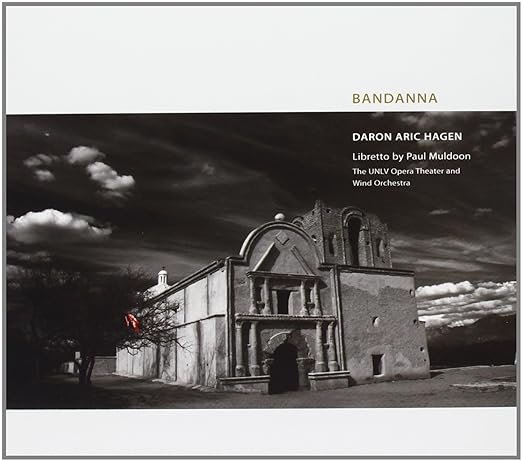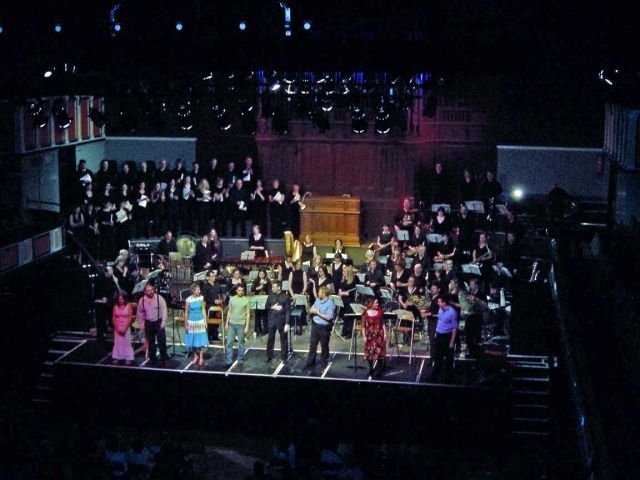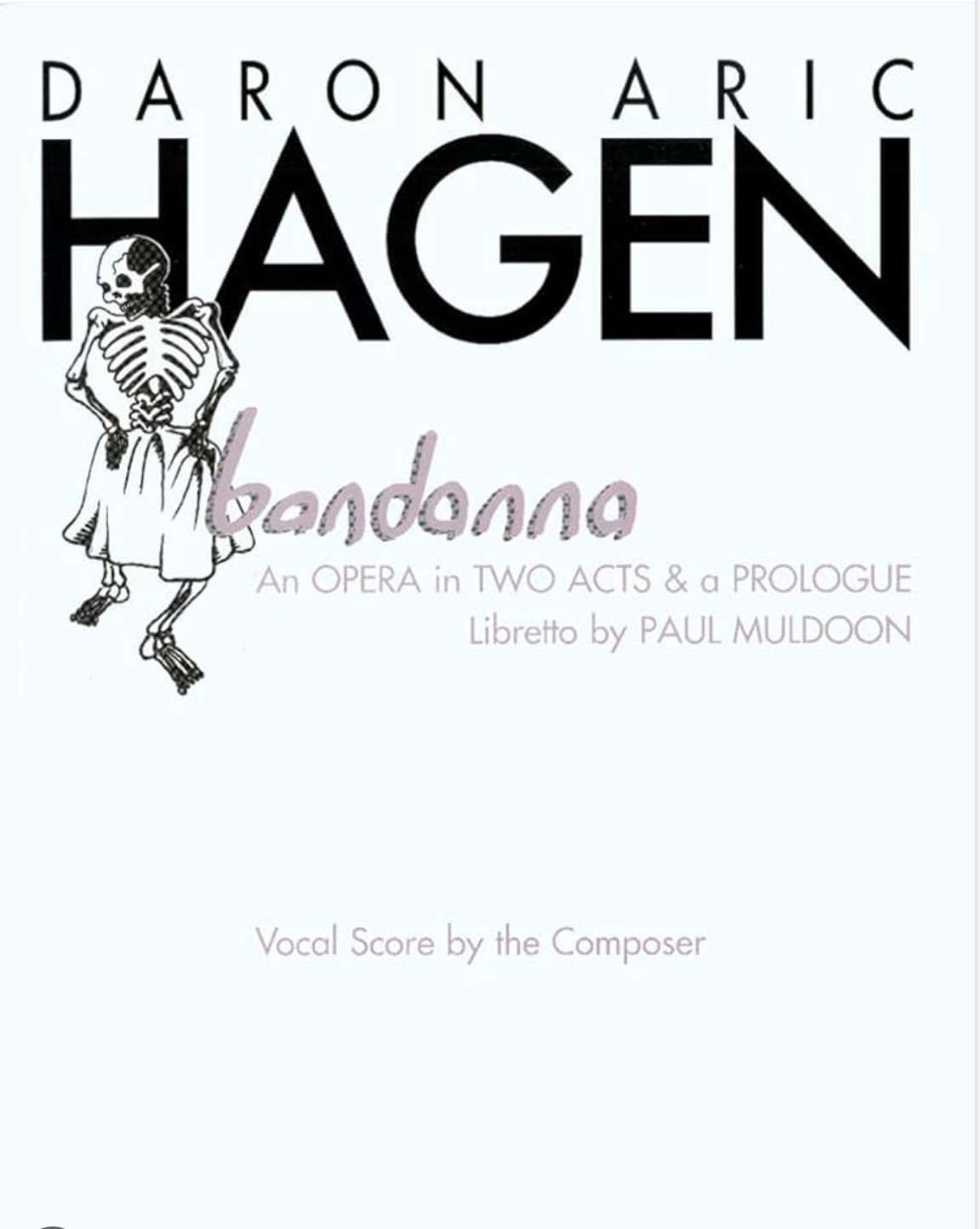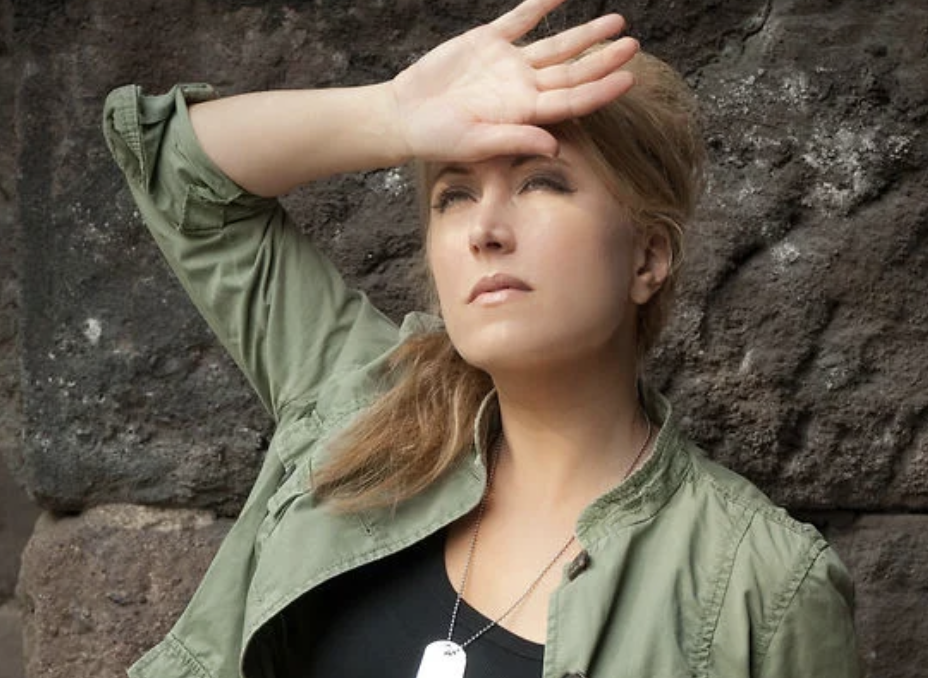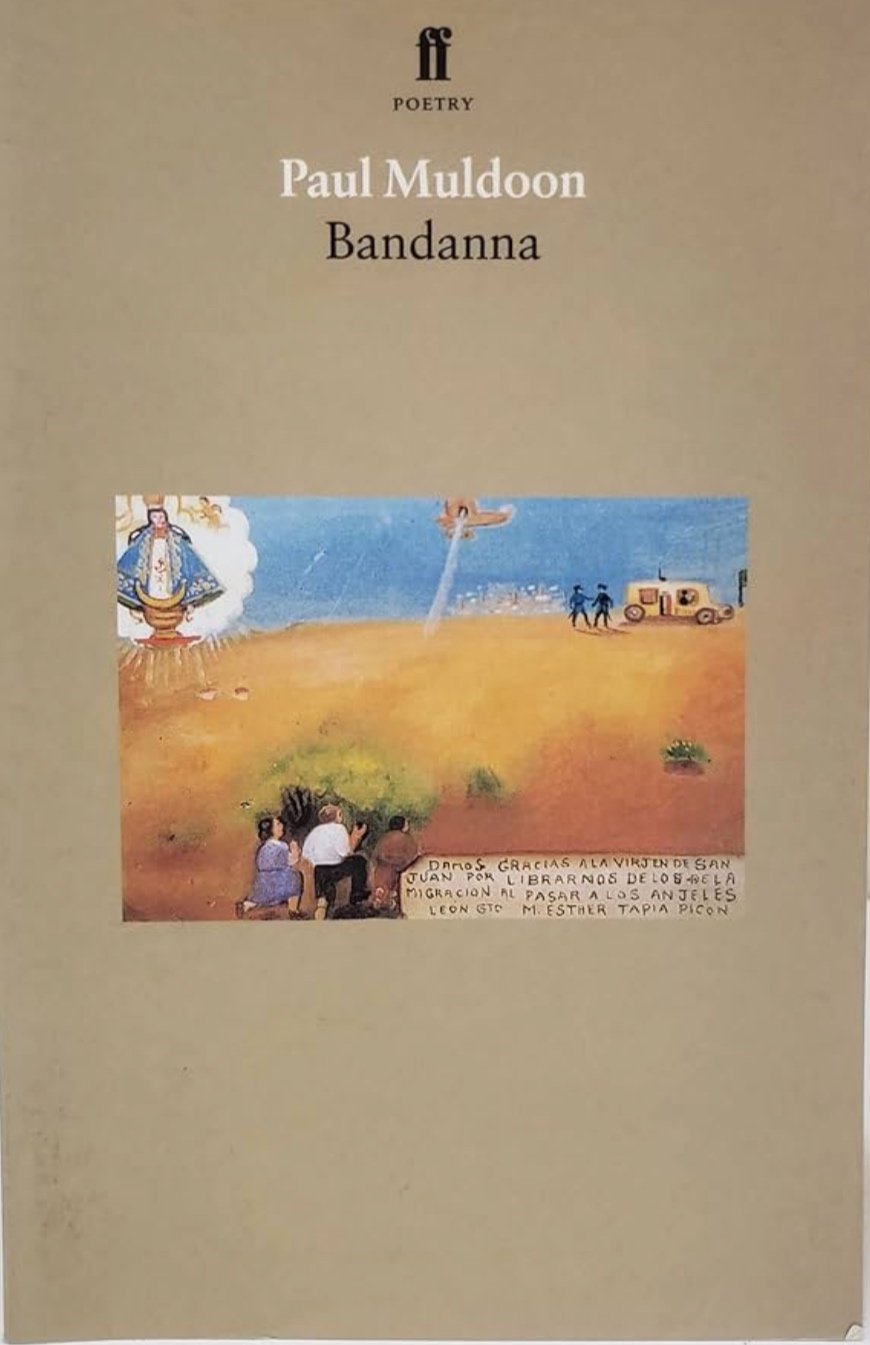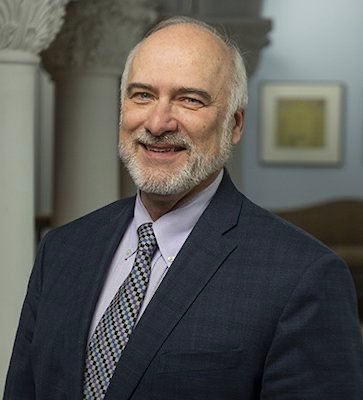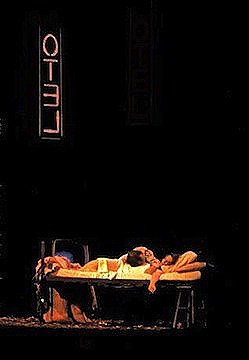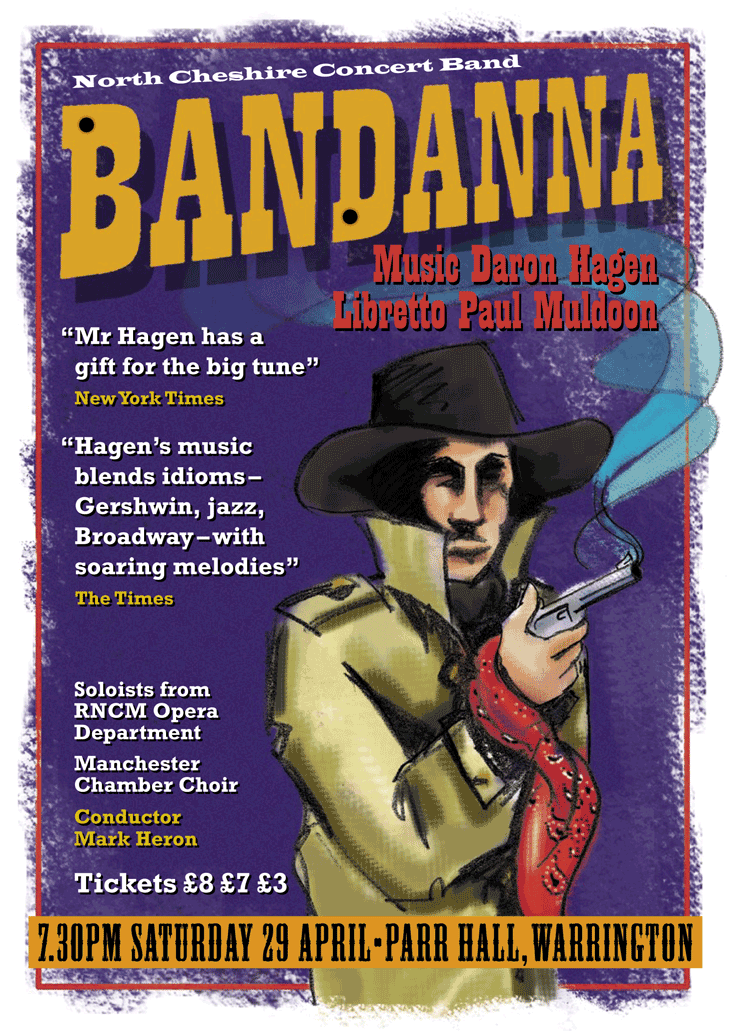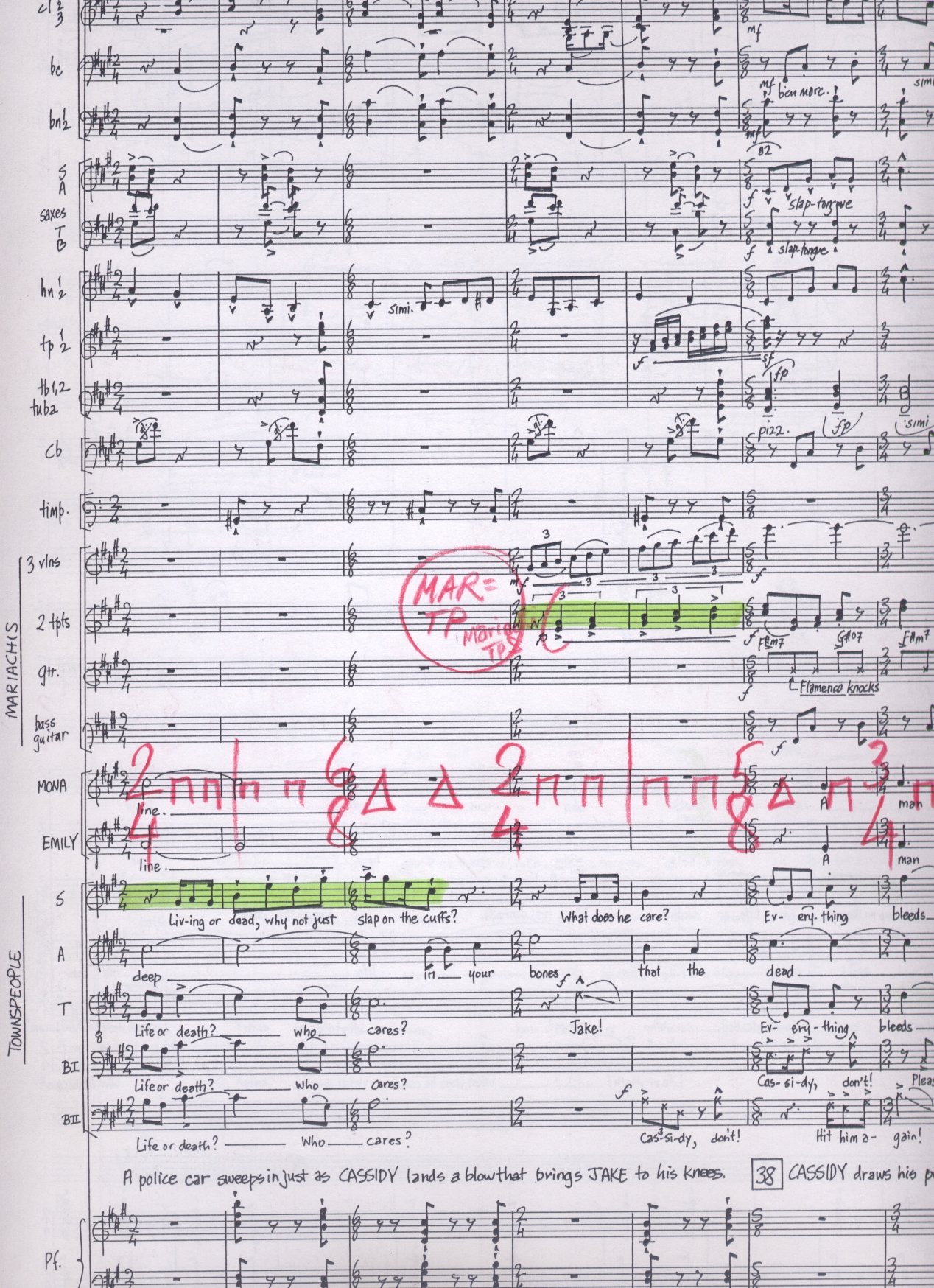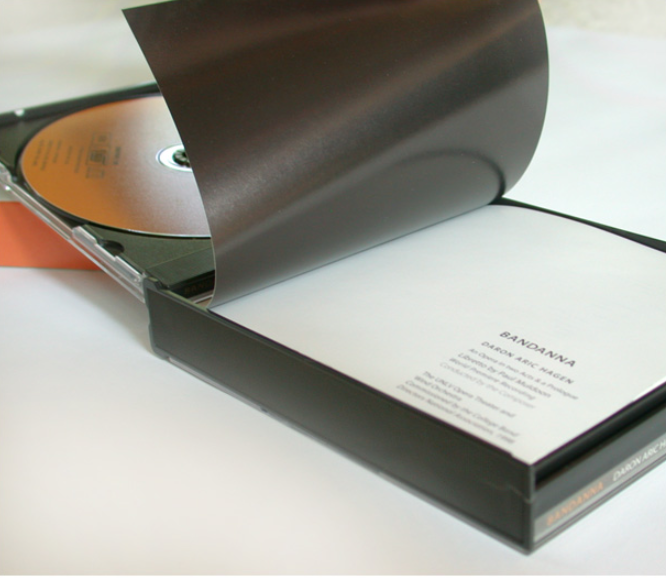BANDANNA (1999)
an opera in two acts and a prologue
Duration: 120 minutes
Music Text
Libretto: Paul Muldoon (E,S)
Scoring
solo voices: S, Mez-S, T, T, Dram-Bar, Bar, B; 2 mariachi singers; mixed chorus; 2 fl (I,II=picc, alto), 2 ob (II=CA), 3 cl (III=BCL), bcl, 2 bsn, ssax, asax, tsax, barsax, 2 tpt (fglhrn), 2 hrn, euph (opt), 2 tbn, tba, 3 db, timp, perc, pf, hp; onstage mariachi band
Publisher / Licensing Agent:
Carl Fischer
Territory
This work is available from Carl Fischer for the world.
World Premiere
12 April 2000 McCullough Theater, Austin, TX
Robert DeSimone, director
Conductor: Michael Haithcock
Company: UT Opera Theater
Roles
Miguel Morales (T)
James Kane (Dram-Bar)
Jake Lopez (Bar)
Mona Morales (S)
Cassidy (Bass-Bar)
Emily (Mez-S)
Leader (T)
Two Mariachi Singers (men or women)
mixed chorus (12+ voices)
Time and Place
A small town on the Mexico-US border during autumn 1968
Synopsis
Touch of Evil is crossed with Under the Volcano in this searing, "soaringly eclectic" post-verismo retelling of the Bard's Othello set in the spiritual, physical, and ethical "liminal zone" of the Texas-Mexican border on the "Day of the Dead" in 1968. Miguel Morales (Othello) is the police chief of a small town on the USA-Mexico border. He is married to a mestizo woman named Mona (Desdemona). His lieutenant Jake (Iago) spends his off-duty hours spiriting people across the border illegally; Kane (a Caucasian labor organizer from Chicago) is stirring up trouble. The action centers on the wedding of Jake and Emily (Emilia), and features the unfortunate planting of Mona's bandanna by Kane and Jake in Cassidy's (Cassio) pocket, and the subsequent murder of Mona by her husband. Set on the "Day of the Dead," the opera's unifying concept is the idea of the borderlines between emotional, metaphysical and moral states.
Production Stills
Here
Listen
Spotify | DRAM
Links
Wikipedia | Score | Libretto | Recording
Selected Notable Performances
- American Concert Premiere: 3 March 2000 / Ham Concert Hall, Las Vegas, Nevada / UNLV Opera Theater and Orchestra / Daron Hagen
- European Concert Premiere: 26 April 2006 / Parr Hall, Warrington, UK / North Cheshire Concert Band; Manchester Chamber Choir; RNCM Soloists / Mark Heron
"Hagen not only composed this opera, but conducts it as well. From the outset, I'll state that the performances and production values are superlative, that the instrumentalists and chorus from the University of Nevada Las Vegas never seem short of professionalism, despite their student status, and I doubt any opera's recorded premeire could be better than this. Henry Fogel has already reviewed this piece ... he feels it's a masterpiece, and it was on his 2006 Want List. Hagen is an extremely savvy and lyrical composer. His text setting is great for highlighting the strengths of each vocal type, and it leads to almost flawless English enunciation. One of the work's greatest coups is the orchestration, which is for wind ensemble. The result is so fluent one really doesn't ever miss the strings, and it's a great argument for this to be done far more often, especially considering the great logistical burdens new oepras face. ... The overall result is dramatically sure and lyrically compelling.—Robert Carl, Fanfare, May/June 2007
"Daron Hagen's opera Bandanna received its European premiere in the somewhat unlikely surroundings of the Parr Hall, Warrington, on 29 April. ... Hagen's vocal writing is masterful. His use of the wind orchestra is equally stunning, to the point where one was never aware of a wind band, but simply of dramatic music. He brilliantly explores the various ensembles within the band, which not only gives the ear welcome changes of colour but also creates a lightness of texture which rarely overpowered the voices. Were the performance given in a theatre with the orchestra in the pit, the balance, which was generally excellent, would have been perfect throughout. The musical language is a very individual one, with Puccini-esque grand gestures alternating with positively modernist orchestration, all in perfect support of the drama. I particularly enjoyed his use of the mariachi band and was deeply moved by the serene final soprano aria set with three solo violins. ... For me, the highlight was to see the performers so engaged, with many in tears in the final scene. This was, after all, a modern opera, yet it spoke directly to each and every player and singer. Putting this on with a community band in Warrington was nothing short of insane. After the composer, the hero of the evening was Mark Heron. His vision, determination, organisation, musical brilliance and sheer ambition (for his band, not for himself) gave all present a night they shall never forget. The boundaries of the community band in Britain have been truly shattered and a very healthy audience was there to witness it." —Clark Rundell, CBDNA Journal, Fall 2006
"Bandanna is a banner of triumph! Hagen's descriptive music soars and swells, invoking tender hopefulness in Mona's prayer of faith, while also describing the intense emotions of the distraught Miguel with discordant chord structuring and rhythmic patterns ... this opera should be destined to become a standard in the repertoire."—Carolyn Wardele, Las Vegas Review-Journal, 3/4/00
"Hagen's masterful score captures the rage, intrigue, and tender resignation of the tale." —Jerry Young, Austin American Statesman, 2/99
"You will find Bandanna's weave most intricate." —Andrew Osborn, Boston Review, 3-4/99
"A piece so far outside and ahead of the band world's compreheansion that it will probably never get legs there. Ah, but time will out: once Hagen orchestrates it, the opera will have a shot in opera houses. One will have to wait."--Staten Island Review
"Sonorous, highly-varied, rhythmically gripping, dramatic music; one can scarcely imagine another living composer pulling it off." —Clarino Magazine, Germany
"The drama is powered by a strong emotional thrust, most of it conveyed in the form of popular song, and leads to a shattering climax." —Read Ireland Book Reviews, Ireland
